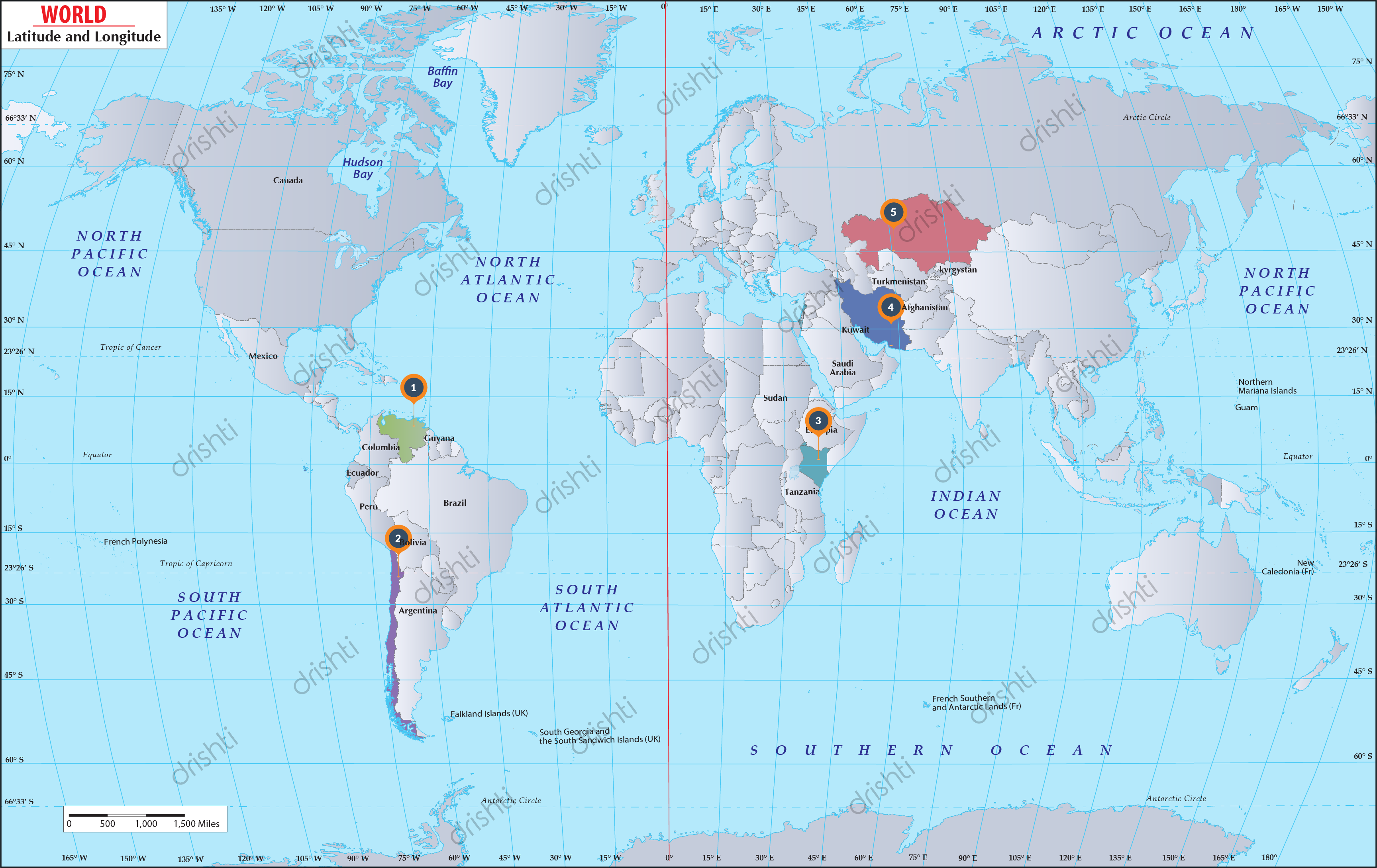-
Identify the country with the last remaining glacier hosting the largest crude oil reserves worldwide.
Venezuela Venezuela has become the first country to likely lose all its glaciers due to climate change. The last remaining glacier, Humboldt, has shrunk significantly and is now classified as an ice field. Venezuela used to be home to six glaciers (5 of them vanished by 2011), located about 5,000 meters above sea level in the Andes mountains.
-
Locate the recently inaugurated highest astronomical observatory in the world.
Tokyo Atacama Observatory (TAO), Chile The Tokyo Atacama Observatory (TAO) has recently been inaugurated at an altitude of 18,500 feet on Mount Chajnantor in Chile's Atacama Desert. It surpassed the famous Atacama Large Millimeter Array (ALMA), which stands at 16,570 feet. Mt. Chajnantor is located in the Andes Mountains near the Atacama Desert.
-
Identify the country in which Nakuru Dam burst because of tunnel blockage caused due to deposition of debris, stones and soil.
Kenya The heavy rainfall in Kenya has deposited debris, stones and soil in the tunnel that channels water to the Tongi river. This caused the tunnel to become blocked and ultimately burst. The dam is located at the village of Kamuchiri near the town of Mai Mahiu. All dams under the Seven Forks dams which include Masinga, Kaburu, Gitaru, Kindaruma and Kiambere were at full capacity.
-
Identify the port for which India and Iran signed a 10-year contract for its operation.
Chabahar port, Iran. India and Iran signed a 10-year contract for operating the Chabahar port in Iran. This long-term agreement was signed between Indian Ports Global Ltd. (IPGL) and Port and Maritime Organisation (PMO) of Iran, enabling operation of the Shahid-Beheshti terminal. It is situated in Sistan and Baluchistan Province, on the Makran coast. It lies in the Gulf of Oman.
-
Locate the sea whose drying up has resulted in the emergence of the Aralkum Desert.
Aral Sea The drying up of the Aral Sea has resulted in the emergence of the Aralkum Desert, making Central Asia dustier by 7%. The Aral Sea, once the world's fourth-largest lake, dried up in Soviet Central Asia in the 1960s. The Aral Sea was fed by the two great rivers of Central Asia i.e., the Amu Darya (from the Pamir Mountains) and the Syr Darya (Tien Shan mountain ranges).






